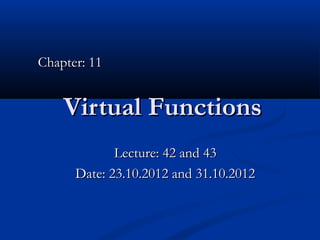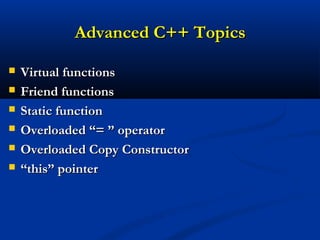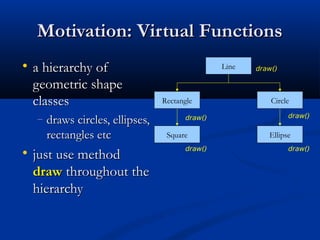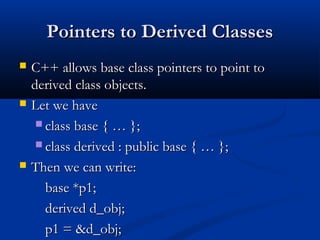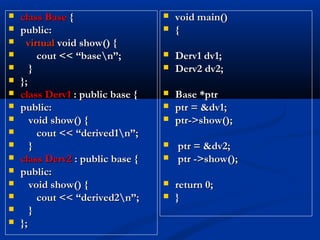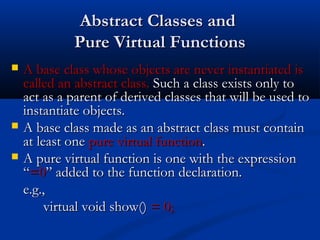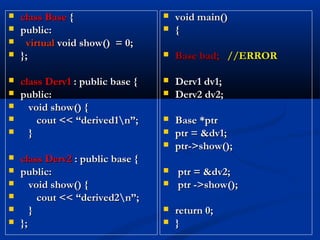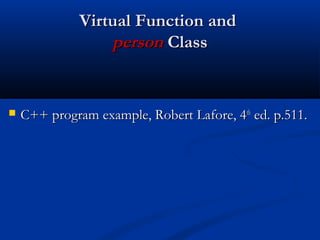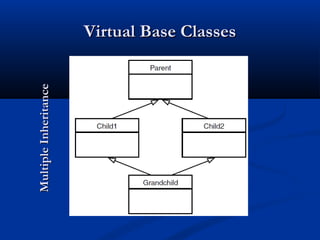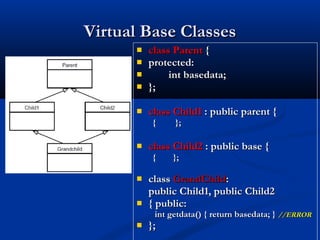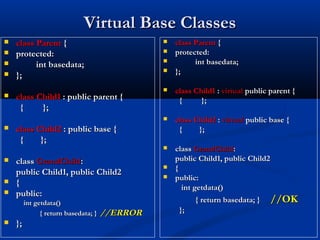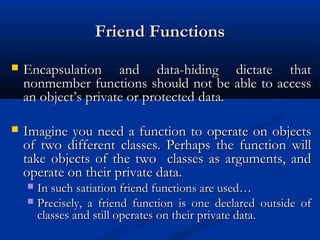The document discusses virtual functions, which allow for polymorphism in C++ by implementing the "one interface, multiple methods" philosophy. A virtual function declared in a base class can be overridden in derived classes. Abstract base classes contain at least one pure virtual function and cannot be instantiated. Virtual base classes are used to resolve issues that can arise with multiple inheritance. Friend functions can access private members of classes they are declared as friends to.
